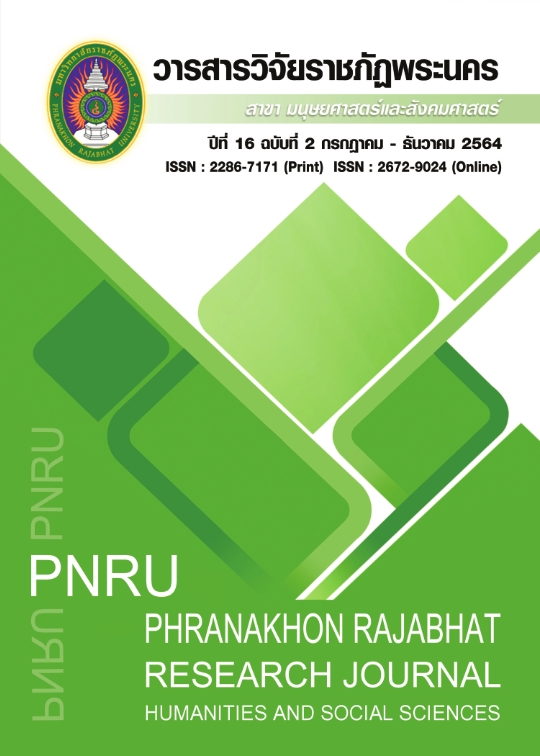THE RELATIONSHIP BETWEEN PASSENGER NUMBERS AND AIRCRAFT MOVEMENTS OF CHIANG MAI AIRPORT
Main Article Content
Abstract
The objectives of this study were to: 1) Analyze the correlation of statistical data between aircraft movements and passenger numbers of Chiangmai airport 2) Present the model of correlation between aircraft movements with passenger numbers of Chiangmai Airport. This research analyzed statistical data of Chiangmai airport operations from year 2010-2020 using simple linear regression analysis and the findings were by the correlation of statistical data between total aircraft movements and domestic passenger numbers, total aircraft movements and total passenger numbers, and total aircraft movements and international passenger numbers of Chiangmai international airport has (R2) 0.998, 0.996 and 0.936 consecutively that have correlation coefficient (R2) closet to 1. These are suitable to be used for futuristic airport planning and developing at Chiangmai Airport.
Article Details
Each publish articles were copyright by Phranakorn Rajabhat University
Any contents which appeared in each articles in the journal were authors personal opinion. It did not relate to Phranakorn Rajabhat University and other instructors in the university. Each authors would take responsibility on their articles. If there are any mistake, the authors will take responsibility themselves
References
Airports of Thailand Public Company. (2020). Annual Report of Airports of Thailand Public Company, Dated: 22 June 2020. Retrieved from http:// www.airportthai.co.th/
Chankoson, T. (2016). The factor analysis and development factors of air transport services: service risks in airline business. Panyapiwat Journal Vol.8 No.3 September - December 2016. 78-88.
Chiang Mai Airport. (2021). Dated: 22 June 2020. Retrieved from http://chiangmai.thailandairportshub.com/th/category-view/chiang-mai-airport-information
FAA forecasting aviation activity by airport (2020). Dated: 22 June 2020. Retrieved from http://www.faa.gov.
Gkika, S., Fraidaki, K.& Pramatari, K. (2013). Developing innovative services: The case of the airport environment. Part of the IFIP Advances information and Communication Technology book series. IFIPAICT, 399, 250-263.
Gisle Solvoll, Terje Andreas, & Morten Welde. (2020). Forecasting air traffic demand for major infrastructure changes. Research in Transportation Economics
Robert M. Sims. (2016). A review and application of aviation forecasting for airport planners. Theses and Dissertations. 397. Retrieved from https://commons.und.edu/theses/397
Jandaboue, W. & Simasathien, P. (2013). Statistical Correlation Analysis of Phuket Airport. EAU Heritage. Vol. 7 No. 2 (2013): July-December 79-87.
Matichon. (2017). Chieng Mai Airport won the third rank of the best airport. Dated: 22 June 2020. Retrieved from https://www.matichon.co.th/economy/news_487627
Srikhwan, B. (2020). Sustainable Airport Development Concept for Thailand. Management Science Magazine. Vol. 7 No. 2 (2020). 239-264.
Tangchitwattana, B. (1999). Sustainable tourism development. Chiang Mai: ChiangMai University Printing.
Taesombat, S. (1996). Quantitative forecast Techniques. BKK: Physics Center Printing.
The Twelfth National Economic and Social Development Plan (2017-2021). (2564). Dated: 22 June 2020. Retrieved from https://www.nesdc.go.th/ewt_news.php?nid=6420&filename=develop_issue
Young, S. B. (2011). Airport planning and management (6th ed.). New York: McGraw-Hill.


